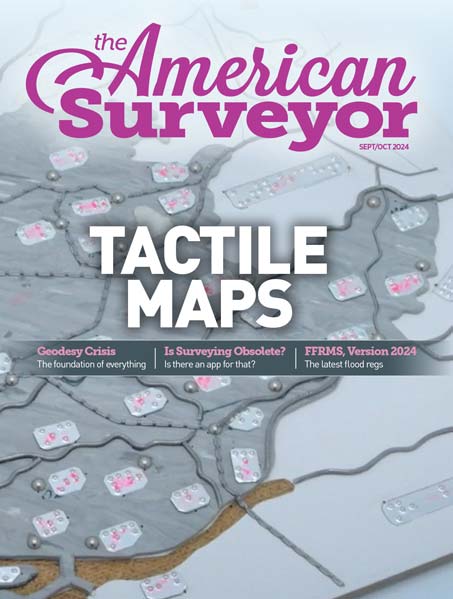Washington, Oct. 19—Associated Builders and Contractors has submitted more than 40 pages of comments to the Federal Acquisition Regulatory Council calling on the Biden administration to withdraw a controversial proposed rule that would require anti-competitive and inflationary project labor agreements on federal construction contracts of $35 million or more.
ABC’s opposition is joined by more than 50 members of the U.S. Senate and House, 18 Republican governors and a diverse coalition of construction industry, small business and taxpayer advocates urging the administration to withdraw President Biden’s Feb. 4 Executive Order 14063, the Aug. 19 proposed rule and additional policies promoting PLA mandates on federal and federally assisted construction projects. Government-mandated PLA schemes needlessly increase costs and exacerbate the construction industry’s skilled labor shortage of 650,000 because they exclude almost nine out of 10 of America’s construction workforce from participating in critical infrastructure projects.
“ABC calls for the immediate withdrawal of this illegal proposed rule and its imposition of anti-competitive and inflationary government-mandated PLAs on federal contracts,” said Ben Brubeck, ABC vice president of regulatory, labor and state affairs. “PLA mandates undermine economy and efficiency in federal contracting, increase construction costs by 12% to 20%, create project delivery delays and discriminate against nonunion contractors and workers, who comprise 87.4% of the construction workforce.
“The Biden administration’s rule will only exacerbate significant headwinds the U.S. construction industry faces: severe supply chain disruptions, unprecedented materials cost inflation of 40.5% since the onset of the COVID-19 pandemic, declining investment and a widespread skilled workforce shortage,” said Brubeck. “ABC strongly urges the FAR Council to immediately withdraw the proposed rule to efficiently provide taxpayers with the best possible construction product at the best possible price and provide all construction industry stakeholders with a fair opportunity to compete for taxpayer-funded construction projects.”
ABC identified numerous problems with the proposed rule:
- Government-mandated PLAs required by the proposed rule will increase costs and reduce competition by deterring the majority of construction contractors and their employees, including small and disadvantaged businesses, from bidding or performing work on government contracts.
- PLA mandates force contractors to replace most or all existing employees with workers from union hiring halls and require companies to obtain apprentices from union apprenticeship programs, undermining workforce development strategies.
- PLA mandates force employees to join a union and/or pay union dues/fees as a condition of employment and force contractors to pay employee benefits into union plans, exposing workers to wage theft of 34% of their paychecks and employers to significant multiemployer pension plan liabilities.
- PLA mandates are likely to decrease hiring of local, minority, women, veteran and reentering construction workers and small, minority, women, veteran and disadvantaged business enterprises.
- This proposed rule violates numerous federal laws, including the Competition in Contracting Act, the Congressional Review Act, the Federal Property Administrative Services Act, the Administrative Procedure Act and the Small Business Act and will expose the Biden administration and federal construction projects to costly litigation.
If finalized, this proposal will replace President Obama’s 2009 Executive Order 13502, which encourages, but does not require, federal agencies to mandate PLAs on large-scale federal construction projects exceeding $25 million in total value on a case-by-case basis, and permits states and localities to mandate PLAs on federally assisted projects. The Biden administration expects its proposed rule to affect about 120 federal contracts valued at $10 to $14 billion per year.
At least 2,500 ABC member contractors across the country submitted comments opposed to this proposed rule during the 60-day comment period. According to a September 2022 survey of ABC contractor members, 98% oppose this proposed rule. Additionally, 97% said a construction contract that required a PLA would be more expensive compared to a contract procured via fair and open competition, 99% said they were less likely to bid on a taxpayer-funded construction contract if the bid specifications required the winning firm to sign a PLA with labor unions and 97% of respondents said that government-mandated PLAs decrease economy and efficiency in government contracting.
ABC strongly supports the Fair and Open Competition Act (S. 403/H.R. 1284), introduced by Sen. Todd Young, R-Ind., and Rep. Ted Budd, R-N.C, which prohibits government-mandated PLAs on federal and federally assisted projects and helps taxpayers get the best possible product at the best possible price.
Members of the U.S. House and Senate supportive of this legislation have written letters to the White House in opposition to anti-competitive pro-PLA policies championed by the Biden administration.
Currently, 24 states restrict government-mandated PLAs on state, state-assisted and local construction projects to some degree. Governors also filed comments with the FAR Council and, in April, expressed disappointment in White House efforts to push PLAs on federally assisted construction projects through infrastructure grant programs administered by federal agencies.
To learn more about how corrupt government-mandated PLAs rig the competitive bidding process, hurt taxpayers and endanger plans to rebuild America’s infrastructure, visit BuildAmericaLocal.com.
About ABC
Associated Builders and Contractors is a national construction industry trade association established in 1950 that represents more than 21,000 members. Founded on the merit shop philosophy, ABC and its 68 chapters help members develop people, win work and deliver that work safely, ethically and profitably for the betterment of the communities in which ABC and its members work. Visit us at abc.org.
